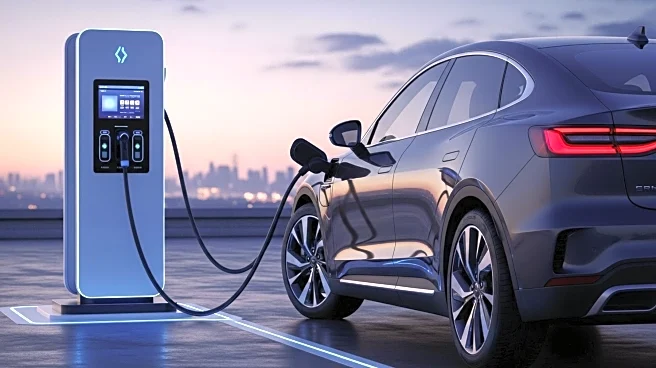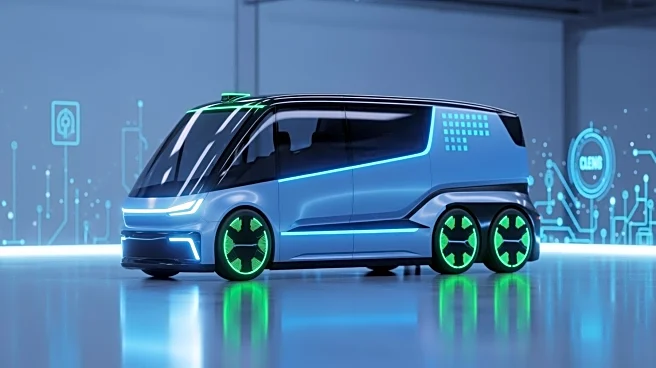What's Happening?
In August, electric vehicle buyers in the United States showed a preference for mass-market brands over luxury options, as they sought to maximize discounts and tax credits. This trend contributed to a 24%
surge in EV registrations during the month. According to S&P Global Mobility, the total number of EV registrations in the first eight months of the year rose by 9.1%, reaching 884,104 vehicles. The shift towards more affordable electric vehicles indicates a growing consumer focus on cost-effectiveness and practicality, as buyers prioritize financial savings and accessibility.
Why It's Important?
The preference for mass-market electric vehicles highlights a significant shift in consumer priorities, with affordability taking precedence over luxury features. This trend may influence automotive manufacturers to adjust their strategies, focusing on producing cost-effective EV models that appeal to a broader audience. The growing demand for affordable electric vehicles could drive innovation in battery technology and production processes, ultimately reducing costs and enhancing vehicle performance. As consumers increasingly opt for practical transportation solutions, the automotive industry may experience a shift in market dynamics, impacting both manufacturers and suppliers.
What's Next?
Manufacturers are likely to respond to this trend by expanding their lineup of affordable electric vehicles, investing in research and development to improve efficiency and reduce production costs. The continued availability of tax credits will support this growth, encouraging consumers to consider electric vehicles as viable alternatives to traditional cars. Policymakers may explore additional incentives to promote the adoption of mass-market EVs, while industry leaders focus on enhancing vehicle features and infrastructure to meet consumer demands. The evolving market presents opportunities for collaboration between government, industry, and environmental groups to advance sustainable transportation solutions.
Beyond the Headlines
The shift towards mass-market electric vehicles may also influence cultural perceptions of EVs, positioning them as practical and accessible options for everyday consumers. As more people experience the benefits of affordable EVs, public attitudes towards sustainable transportation could evolve, driving further demand and support for environmental initiatives. This cultural shift may encourage broader societal acceptance of electric vehicles and contribute to the transition towards a more sustainable future.









